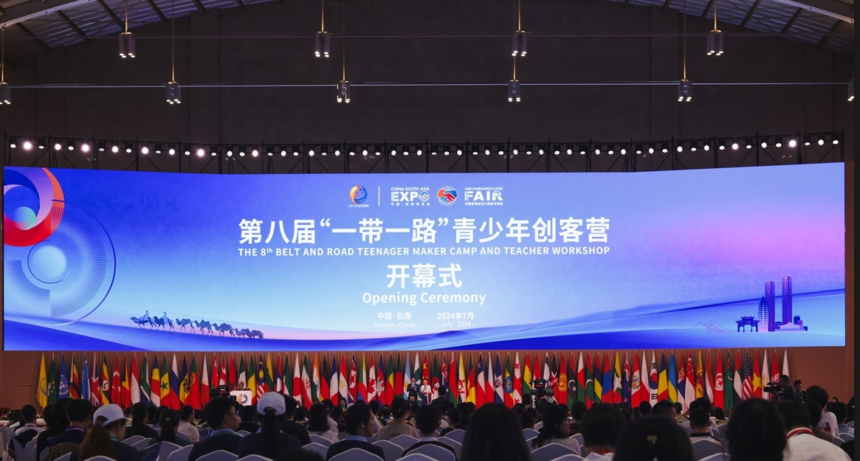The Eighth Belt and Road Teenagers Makers Camp and Teacher Workshop has commenced in Kunming, Yunnan Province, celebrating its ongoing commitment to global education and cooperation. This year’s event, running from July 23 to 28, is marked by record participation, with nearly 300 educators and students from over 30 countries joining the initiative.
Organized by the China Association of Science and Technology, China’s Ministry of Science and Technology, and the Yunnan provincial government, the camp exemplifies the Belt and Road Initiative (BRI) principles of fostering international collaboration and innovation. Since its inception in 2017, the camp has aimed to address practical issues in local education sectors and promote cross-cultural exchanges.
Jackie Kado, executive director of the Kenya-based Network of African Science Academies (NASAC), shared her enthusiasm for the event’s impact. “This is my fourth time participating, and the cutting-edge science that students engage in at a young age remains the most inspiring and impressive aspect for me,” Kado told the Global Times. She highlighted the challenges faced by science education in Africa, including gender biases and limited resources. Kado sees China-Africa cooperation as a key to overcoming these obstacles and enhancing scientific education through cultural exchange and collaborative opportunities.
Manzoor H Soomro, vice-president of the Belt and Road International Science Education Consortium (BRISEC) and a long-time participant, praised the camp’s role in fostering global connections. “I really love the Chinese approach and development,” Soomro said. “In the Western world, there can be a sense of superiority among developed countries. In contrast, the Eastern approach, exemplified by the BRI, emphasizes humility and open collaboration, reminiscent of the original Belt and Road story where people learned from each other.”
Soomro emphasized the camp’s significance in building networks for the younger generation, noting that while not all participants will pursue careers in science and technology, the relationships and trust formed during the camp will be invaluable in their future roles in administration, finance, and policy-making.
The camp’s focus on nurturing young talent and facilitating international collaboration underscores the BRI’s broader vision of integrating science, technology, and education into global partnerships. As the world continues to navigate complex challenges, initiatives like the Belt and Road Teenagers Makers Camp play a crucial role in shaping the leaders of tomorrow through innovation and cross-cultural dialogue.

